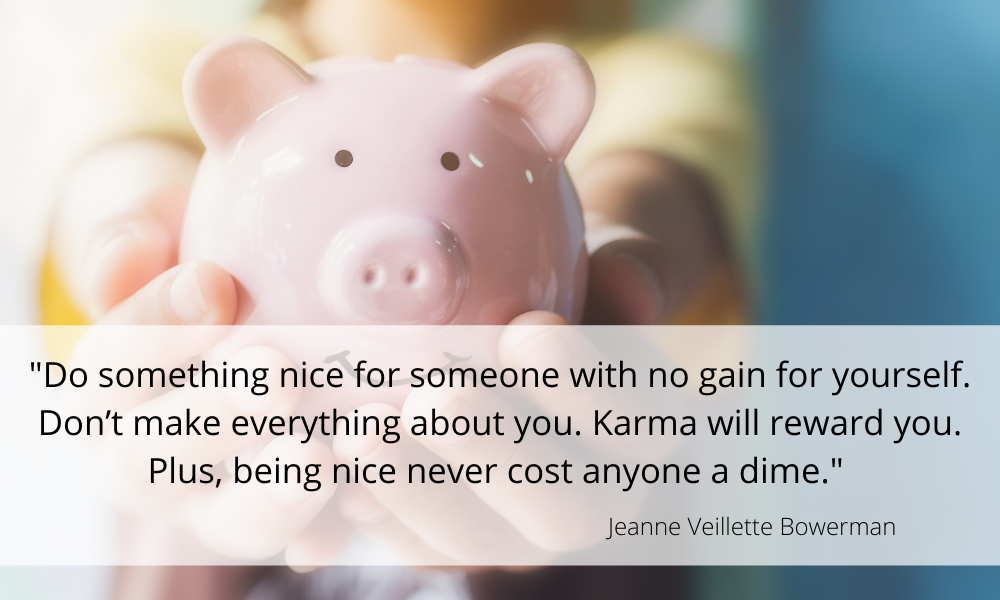The Ins and Outs of Hollywood
Are you a screenwriting rookie trying to make the movies major leagues? Be a hit in Hollywood with these 15 ins and outs of the industry.
As you approach the jumping-off place from writing your screenplay privately to plunging into the Hollywood marketplace, here are the answers to new screenwriters' most-asked questions.
1. Do I have to live in L.A.?
No. In our increasingly placeless society, physical location of a writer is becoming less and less important. You will have to go to L.A. for some meetings, but many meetings now happen by conference calls. And scripts can be delivered instantly by e-mail or by overnight delivery.
2. Do I need to submit my script to an agent first?
No. Get anyone you can in the business to read your script. I recommend you send it to agents and producers, actors with production deals and directors who also produce. Once you have someone interested in your script, it may be easier to get an agent.
3. What is a release form, and should I sign one?
Most producers and studios require that you sign a release form before they even read your script (if you don't have an agent). The fine print may be alarming, but you are basically promising you won't sue if they have a similar project in development.
4. What is an option?
It is a contract giving a producer a specified amount of time to try and sell your script to a studio or network. The amount of money ranges from nominal ($1) to phenomenal (for a best-selling book for example). Options are usually for six months to a year, plus renewal clauses. If you believe in the producer's ability to set projects up, go for it; however, if the producer has a bad reputation in the eyes of a particular studio, your project may be passed over because of him. So be wary about with whom and for how long you option—once it has been all over town, even the shiniest new script gets shopworn.
5. Is a Writers Guild of America strike a great opportunity for new writers to break in?
Not great. Once the stores are closed, the serious shoppers tend to stop looking. Hollywood pretty much shuts down during major strikes. And if you do sell a script during a strike, the Writers Guild will not look kindly on it when you come in later, ready to join.
6. I know a true story that would make a great movie. Do I have to get the rights?
Yes. People own their own life stories, unless they are celebrities. You can do an unauthorized biography of Napoleon or Madonna. But your Uncle Benny could sue you for writing the story of his escape from Alcatraz, and he'd win. Most people are happy to have their stories told. Ask them, and write up a simple letter of agreement in which Uncle Benny gives you permission to tell his story, and if it sells, he will be paid for the rights. The amount can be negotiated later at "fair market value." If you love the story and can't get the rights, you can do a fictional version, but it has to be different in most major aspects: characters, setting, sequence of events, etc. In other words, if Benny is now a female prisoner escaping from an insane asylum in 1852, you'll be fine.
7. Someone wants me to write the screenplay for his story idea and, if it sells, we'll split the money. Should I?
In my opinion, only if it's a once-in-a-lifetime, fabulous idea. Collaboration is often twice the work for half the fee. Or in this case, you'd be doing all the work for half the money. And a screenplay that isn't an original story and script by one person, is often not considered as a writing sample to get you other assignments.
8. Someone likes my script but wants me to rewrite it for free. I don't have a contract. Should I do it?
On two conditions only: 1) If the changes suggested make it a much better script; 2) If everyone is clear that making the suggested changes in no way gives anyone else any degree of ownership over the script. If this person wants ownership, he or she will have to buy or option the script, sign a contract with you and pay you. Producers often feel that if they have "worked on a script" with a writer, it is "their script." This is not the case. Until someone buys your writing, it belongs wholly and solely to you.
9. Can a writer have creative control?
No. This is a fantasy. It doesn't exist. It is easier to get to direct your own movie than to be granted "creative control." If you are personable and easy to work with, however, you may be welcome at read-throughs, on the set and in dailies. The filmmakers may not ask your opinion, but that doesn't mean you aren't free to give it to them anyway. And sometimes they even listen.
10. I've written a book (or article) that would make a good Hollywood movie. Do I have to write the screenplay to sell it to Hollywood?
No. Studios are in the market for "projects," and those often come in the form of books, stories or articles. If you have a literary agent, ask him to submit your book or story to the Hollywood marketplace. Or you can send query letters to agents and producers just as you would for a screenplay.
11. Do I have to be a member of the Writers Guild to sell a script?
No. You are free to sell scripts to any movie market. But to be hired to rewrite a script or for a development deal by a company that is signatory to the Writers Guild (all the major entertainment companies), you must join. Further, to even be eligible to join, you must have sold at least one script. Once a member though, the benefits in terms of medical coverage, pension and residuals are well-worth the fees and dues.
12. Should I register my screenplay with the Writers Guild before I send it out?
Absolutely. For $20 the Writers Guild will keep a copy of your script on file and testify on your behalf if your work is stolen. You can reach the Guild online at www.wga.org or by phone at the script registration department, (323)782-4500.
13. How do I know if a person who calls himself a producer is legit?
Ask what his credits are. Have you heard of his movies? Go to the video store, and see if his name is on the video cassette cover. You can also contact the Producers Guild of America and see if he is a member. Anyone can call himself a producer. Hollywood is jammed with "producers." The key is, what has he produced?
14. Aren't cable movie channels new and growing markets for screenplays?
Yes. Research these markets by watching each channel's programming, particularly their originals. Showtime, HBO, USA, Lifetime, Fox Family, even MTV and VH1 are making original movies. Study their movies, and approach them as you'd approach any other studio or network, with well-tailored ideas and well-written, polished screenplays.
15. Should I read the trades?
The trades are what Hollywood calls its two major daily newspapers, Variety and The Hollywood Reporter. I don't recommend it. The amount of information they contain is far beyond what is useful or beneficial to an aspiring writer. If you want to keep a finger on the pulse of Hollywood, read a more general movie periodical like Entertainment Weekly or Premiere magazine. Read the entertainment section of your local newspapers. Read the reviews, go to the movies and track box office scores. Before you compare your new script to a major movie, know whether or not it was considered a box office disappointment. Even $100 million grossing movies can be bombs if they cost $120 million to make.
The more you understand the movie industry, the easier the transition will be from sandlot dreamer to rookie slugger in the major leagues.
Cynthia Whitcomb will teach screenwriting at the Santa Fe Screenwriting Conference, May 26-28. For more information visit www.SfeSC.com or call (505)424-1501.








